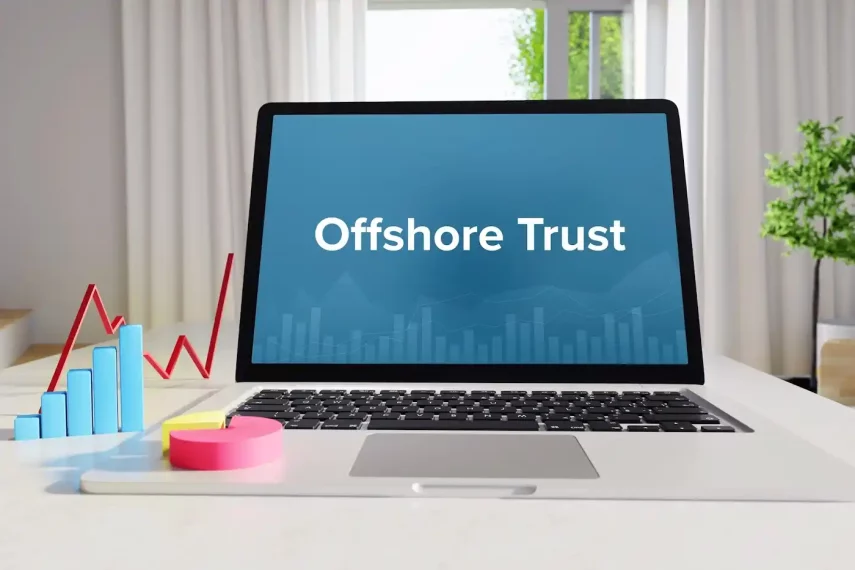Offshore trusts have become a strategic solution for business owners who aim to protect their assets amidst the complexities of the global financial landscape. These legal arrangements allow individuals to place assets under trustees’ control in a foreign jurisdiction. This offers a layer of protection against legal uncertainties, potential creditors, and volatile political or economic conditions.
This article explores the nature of offshore trusts and how they can protect business owners’ assets.
Understanding offshore trusts
An offshore trust operates similarly to a domestic one, where a settlor transfers assets to a trustee. The trustee then administers these assets for the benefit of the beneficiaries. The distinctive feature of offshore trusts, however, is their establishment in foreign jurisdictions chosen specifically for their beneficial trust regulations and commitment to financial confidentiality.
These jurisdictions typically offer legal frameworks that enhance asset protection and provide greater privacy, making them attractive to those seeking to safeguard their wealth from potential legal threats or economic instability in their home country.
By situating the trust outside the settlor’s domicile, offshore trusts utilize international legal landscapes to offer a strategic advantage in asset management and protection. This can appeal to individuals and business owners looking for sophisticated solutions in global wealth preservation.
Selecting the right jurisdiction
Choosing the appropriate jurisdiction for an offshore trust is crucial and requires careful consideration of various factors. These include the robustness of the legal framework, political and economic resilience, privacy regulations, and any existing international agreements that could influence the trust’s operation.
Among the most preferred jurisdictions, the Cook Islands stands out for its strong asset protection laws and experienced financial services sector. The legal infrastructure of the jurisdiction further enhances its appeal by effectively shielding assets.
If you’re an entrepreneur exploring this avenue, it’s crucial to delve into the specific costs involved, such as the fees for establishing a Cook Island Trust, as part of your comprehensive preparation and decision-making process.
Benefits of offshore trusts for business owners
Offshore trusts present an array of benefits tailored to the unique needs of business owners seeking to fortify their financial foundation and secure their legacy. These international legal structures aren’t just about asset protection; they encapsulate a strategic approach to wealth management, privacy, and succession planning.
Below are some benefits of offshore trusts for business owners:
1) Asset protection

At the forefront of the advantages is robust asset protection. Offshore trusts create a formidable barrier against potential encroachments by creditors, legal disputes, or adverse judgments. Jurisdictions renowned for their trust-friendly laws, such as the Cook Islands, ensure that assets domiciled within their trusts are shielded from the grasp of domestic legal systems, thereby complicating the efforts of creditors to lay claims on those assets.
2) Estate planning and privacy
In estate planning, offshore trusts offer an unparalleled advantage. They facilitate the seamless transfer of wealth to succeeding generations, minimizing the impact of taxes and avoiding the often protracted and public process of probate. Moreover, the veil of privacy afforded by these jurisdictions ensures the confidential handling of asset distribution, keeping sensitive information out of the public eye.
3) Diversification and stability
Lastly, strategically relocating assets to politically and economically stable jurisdictions serves as a hedge against local volatility. Offshore trusts can offer you the opportunity to diversify your asset base geographically, providing a bulwark against the uncertainties of local markets and political landscapes. This level of diversification is crucial in creating a resilient asset protection strategy that stands the test of time and global economic fluctuations.
Considerations and risks
While offshore trusts offer numerous benefits, they’re not without their complexities and potential downsides. Here are some considerations for business owners setting up an offshore trust:
1) Legal and tax compliance
It’s paramount to comply with the laws and tax regulations of both the home country and the trust’s jurisdiction. Failure to adhere to reporting requirements can lead to penalties and undermine the trust’s effectiveness in asset protection.
2) Costs and fees
The costs associated with setting up and maintaining an offshore trust can be substantial. These expenses include legal fees, trustee fees, and any other administrative costs. You must weigh these costs against the benefits of offshore asset protection.
3) Reputational considerations
Using offshore trusts, especially in tax haven jurisdictions, may carry reputational risks. It’s essential for you to consider the potential public perception and ensure your use of offshore trusts is for legitimate asset protection and estate planning purposes.
Implementing an offshore trust strategy
Establishing an offshore trust is a strategic decision that requires meticulous planning and expert guidance to ensure that the structure aligns with your asset protection and estate planning goals. This process can be broken down into a series of steps:
- Assessment and planning: The initial phase involves a comprehensive evaluation of the assets in question, pinpointing their nature, value, and potential risks they might face. This step is crucial for identifying the specific objectives that the offshore trust needs to achieve, such as asset protection, tax efficiency, or succession planning.
- Selecting advisors: Securing the right team of advisors is paramount. Legal and financial professionals with a deep understanding of offshore trust structures and the intricacies of the chosen jurisdiction’s legal framework will provide invaluable insights and guidance throughout the process.
- Choosing a jurisdiction: The choice of jurisdiction is a pivotal decision influenced by factors such as the legal system’s stability, privacy laws, and the financial services infrastructure. This decision should be made in consultation with advisors, considering your personal needs and the strategic advantages of each jurisdiction.
- Drafting the trust deed: This document is the foundation of the trust, outlining the terms, beneficiaries, and the powers and duties of the trustee. It must be carefully crafted by legal experts to ensure it meets the specific needs of the settlor and complies with the chosen jurisdiction’s laws.
- Transferring assets: The actual transfer of assets into the trust is a critical step that must be executed in accordance with legal requirements to ensure the trust’s effectiveness. This might involve complex procedures, especially for diverse asset types or international holdings.
- Ongoing management: The establishment of trust isn’t the end of the road. Regular monitoring and management are essential to ensure the trust complies with legal changes, fulfills its objectives, and adapts to the evolving needs of the beneficiaries and the settlor.
Each step is crucial for creating and maintaining a successful offshore trust. This ensures the trust meets its goal of efficiently protecting and managing assets.
Conclusion
Offshore trusts offer a viable strategy for business owners seeking to protect their assets from various risks. By keeping the information mentioned above in mind, you can leverage offshore trusts to enhance your asset protection strategies, ensure privacy, and plan for the future.



